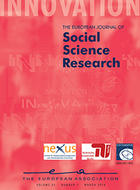This study is the first publication from IDDRI’s initiative on the links between global trade and local biodiversity management. It focuses on the impacts of palm oil production in Southeast Asia and on the ability of existing sustainability initiatives to bring substantial improvements to the situation. Consideration of the sustainability of palm oil production must be based primarily on the fact that three modes of production coexist, which have different impacts on the three dimensions of sustainable development considered here: deforestation, rural poverty and working conditions, and respect for customary land rights. Regarding all three dimensions, the information gathered here suggests that independent smallholder production is the most efficient.
KEY MESSAGES:
- PALM OIL IN SOUTHEAST ASIA: THE SUSTAINABILITY OF A TWOFOLD SYSTEM INTO QUESTION
In Southeast Asia, two broad types of palm oil production systems coexist: industrial plantations and independent smallholders. Recent research suggests that while smalholder production lags clearly behind the industrial one in terms of yields/productivity, it tends to have lower impact on deforestation and better impact on rural development/rural poverty alleviation. As a consequence, taking action to improve the sustainability of the sector means simultaneously (i) helping smahollders to improve their yields while monitoring their environmental and social performance to continue enhancing their level of sustainability, and (ii) supporting private actors to meet their sustainability commitments through both incentives and regulations.
- SUSTAINABILITY INITIATIVES: CERTIFICATIONS, COMMITTED BUSINESS, TERRITORIAL APPROACHES
Existing initiatives to encourage sustainability in the palm oil industry inlude: certification schemes (whichever standard is considered); private commitments that are independent from or go beyond certification standards; and territorial approaches, based on "production area". Their respective level of stringency results from the relationships that exist between actors that bear each of them, and has gradually increased over the last 5 to 10 years, following a very positive "race to the top". Their actual impact is however still well below what they aim to achieve and there are avenues for improvement.
- GUIDELINES FOR PROMOTING THE SUSTAINABILITY OF PALM OIL PLANTATIONS
The improvement of certification schemes relies first on: developing independent audit systems, in which the direct client-supplier relationship between the auditee and the auditor is severed; strengthening dispute settlement procedures; and ensuring the recognition of the protected status of forests, and more specifically of HCV and HCS forests, in all existing standards. Other policy recommendations include better documenting the negotiation processes between actors of the value chain to reinforce the effectiveness of corporate commitments, and strengthening international cooperation to transform agricultural and rural development policies.



